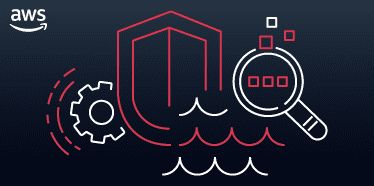Hey there, Bay Area healthcare and cybersecurity professional! Today, I’d love to take you on a little virtual journey to discover an exciting tech tool I’ve found recently—the Security Lake.
You might have heard of it already—it’s a lifesaver for anyone dealing with a load of security data spread across on-premise and cloud sources. What’s wonderful about Security Lake is that it centralizes all of this data in one place, reducing the stress your security team might face when trying to identify and respond to security events. So not only will they be able to recognize potential threats easier, but they’ll also react to them more promptly. That’s a win-win if you ask me!
This concept of centralized security management was something that AWS introduced a year ago following customer demand. Today, they’ve amassed a wealth of use-cases showing how much more efficient this approach is.
Take IPG, for example. In the past, this advertising company had difficulties managing diverse log data sources. But with Security Lake, they can effectively centralize and analyze all related data, resulting in improved security. They get to leverage previously unreachable data sources and streamline their processes, which is incredible, right?
While we’re on the topic of streamlining, allow me to mention Security Lake’s role in speeding up incident investigations. It automatically collects security data, removing the need for custom consolidation pipelines. This aspect of security management becomes way smoother, saving time, resources, and of course, sanity! A company called SEEK was able to use the tool to quickly identify a suspicious host communicating with a malicious IP address, significantly improving their incident response time.
Security Lake helps with storage too. It’s perfect for anyone needing to store a mountain of security logs for compliance. The automated process optimizes storage costs and analytics, and lets you choose which logs to send for further analysis and which to keep for regulatory reasons. Heck, an intelligent climate and energy solutions provider named Carrier found it to be a great help in bolstering their security and governance practices. Convenient, isn’t it?
Security Lake can also help with proactive threat detection and vulnerability. By allowing analysts to use security events to identify complex attack patterns more effectively, it gives them a real jump on potential threats. Customers have also been using it alongside generative AI, and the results have been promising. There’s more visibility into potential risks within an organization and, with that, a better overall security landscape.
Now, let’s talk about one of my favorite aspects of Security Lake: contextual alerts. With Amazon Q in place, it becomes simpler to identify resources and activities that could potentially trigger alarms. Instead of the manual process of sifting through countless log sources, the artificial intelligence handles the initial investigations, making it quicker and easier for your team to narrow down the real issues. It’s a real game-changer.
Since its debut in 2023, there’ve been significant updates to Security Lake. It’s now available in 17 global AWS regions. There’s also been an integration with Amazon Detective for easier querying and retrieving logs, improved analytics performance, and enhanced OCSF support.
To sum it all up, Security Lake is a powerful tool worth exploring. Its ability to centralize, normalize, and optimize security data (plus, a 15-day free trial) seems too good to not check out, right?
In case you’re curious about learning more, the folks at AWS offer a variety of resources including eBooks, demos, infographics, and webinars. Or, if you want to hear firsthand experiences, join us at AWS re:Inforce 2024, the annual cloud security event. Who knows? It could be the start of your company’s journey to a more secure cloud environment!
by Morgan Phisher | HEAL Security




